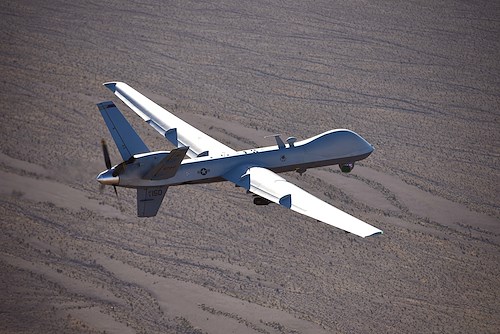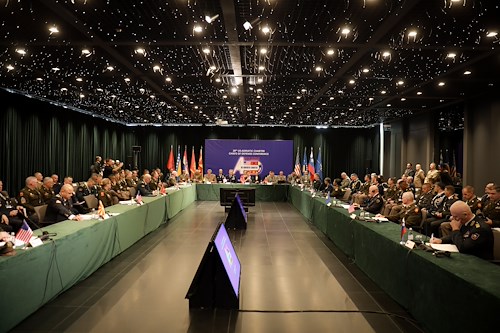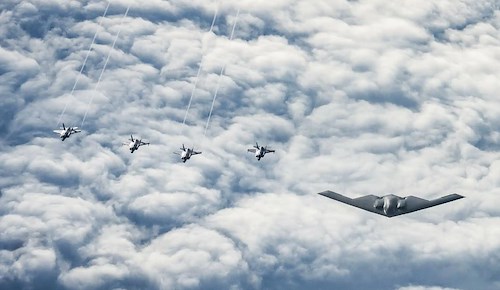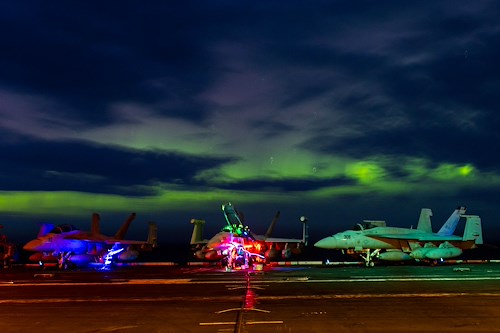Gallery contains 1 image
×
Photo 1 of 1
Russian aircraft collides into US unmanned system in international waters
An MQ-9 Reaper flies a training mission over the Nevada Test and Training Range, July 15, 2019. MQ-9 aircrew provide dominant, persistent attack and reconnaissance for comabtant commanders and coalition partners across the globe. (U.S. Air Force photo by Airman 1st Class William Rio Rosado)
Two Russian Su-27 aircraft conducted an unsafe and unprofessional intercept with a U.S. Air Force Intelligence, Surveillance, and Reconnaissance unmanned MQ-9 aircraft that was operating within international airspace over the Black Sea today.
At approximately 7:03 AM (CET), one of the Russian Su-27 aircraft struck the propeller of the MQ-9, causing U.S. forces to have to bring the MQ-9 down in international waters. Several times before the collision, the Su-27s dumped fuel on and flew in front of the MQ-9 in a reckless, environmentally unsound and unprofessional manner. This incident demonstrates a lack of competence in addition to being unsafe and unprofessional.
“Our MQ-9 aircraft was conducting routine operations in international airspace when it was intercepted and hit by a Russian aircraft, resulting in a crash and complete loss of the MQ-9,” said U.S. Air Force Gen. James B. Hecker, commander, U.S. Air Forces Europe and Air Forces Africa. “In fact, this unsafe and unprofessional act by the Russians nearly caused both aircraft to crash.”
“U.S. and Allied aircraft will continue to operate in international airspace and we call on the Russians to conduct themselves professionally and safely,” Hecker added.
This incident follows a pattern of dangerous actions by Russian pilots while interacting with U.S. and Allied aircraft over international airspace, including over the Black Sea. These aggressive actions by Russian aircrew are dangerous and could lead to miscalculation and unintended escalation.
U.S. Air Forces in Europe – Air Forces Africa routinely fly aircraft throughout Europe over sovereign territory and throughout international airspace in coordination with applicable host nation and international laws. In order to bolster collective European defense and security, these missions support Allied, partner, and U.S. national objectives.
For more information, please contact U.S. Air Forces Europe at usafepao.pao@us.af.mil.
About USEUCOM
U.S. European Command (USEUCOM) is responsible for U.S. military operations across Europe, portions of Asia and the Middle East, the Arctic and Atlantic Ocean. USEUCOM is comprised of more than 64,000 military and civilian personnel and works closely with NATO Allies and partners. The command is one of two U.S. forward-deployed geographic combatant commands headquartered in Stuttgart, Germany. For more information about USEUCOM, visit www.eucom.mil.







